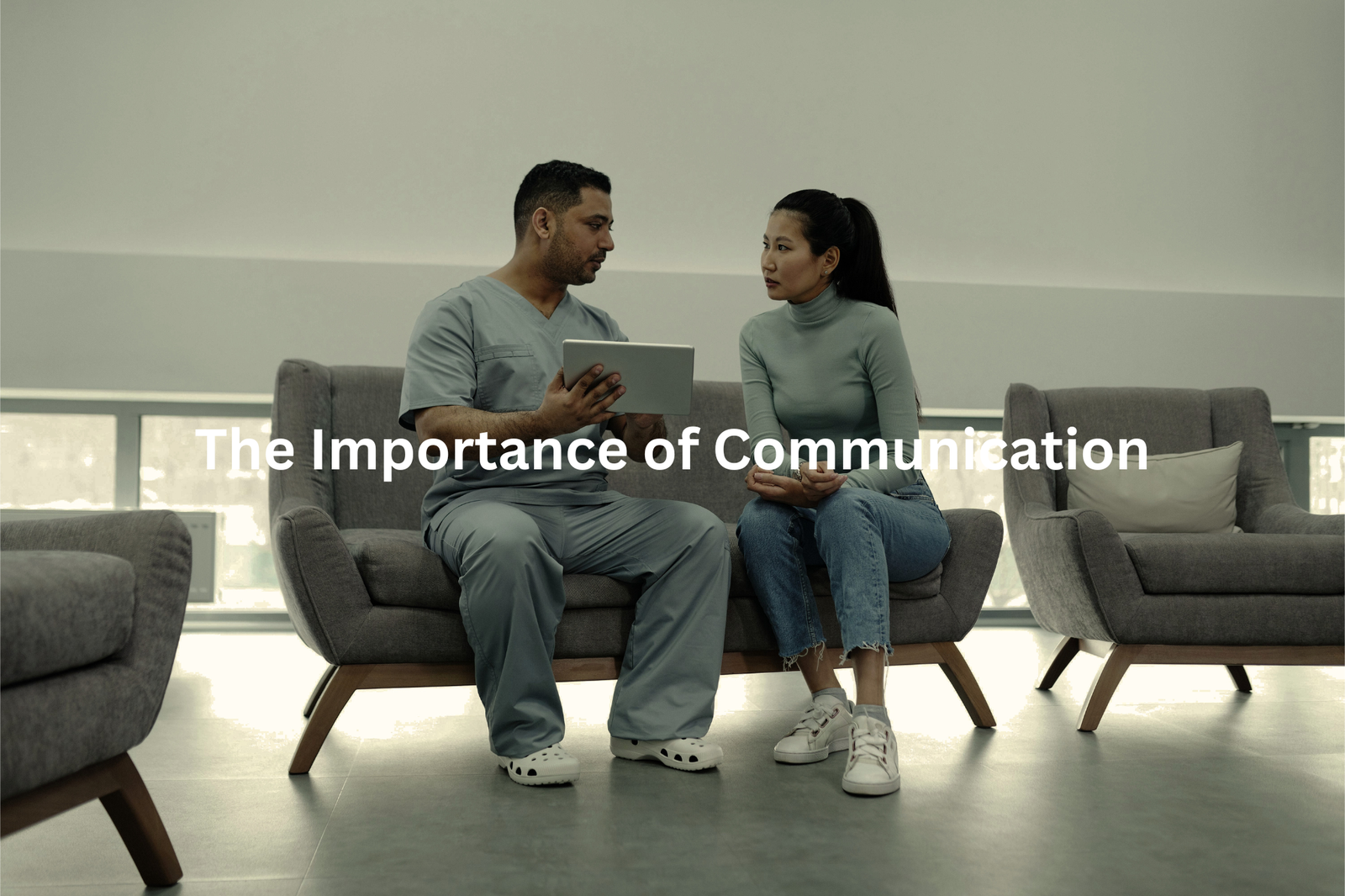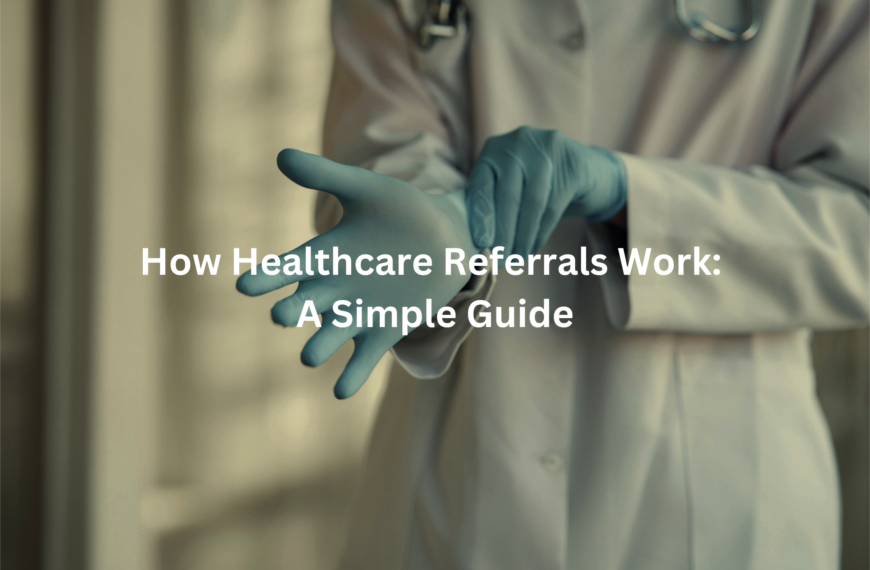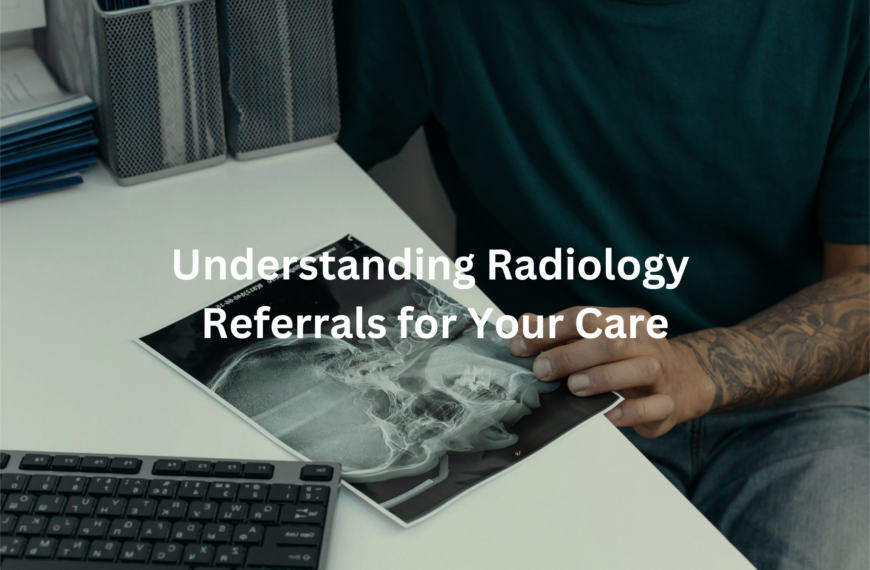When you need a specialist, the referral process can seem tricky. Let me explain how it works so you get the care you deserve. Read on for clarity.
When you’re not feeling well, seeing a doctor is important. If that doctor thinks you might need expert help, they can send you to a specialist, like a heart doctor or a skin doctor. This is known as the referral process. It might feel a bit tricky, but it really helps ensure you get the right care for your problem.
Referrals help direct you to the best person who knows how to help. So if you ever need more help with your health, don’t worry; just ask your doctor about seeing a specialist. Keep reading for more details!
Key Takeaway
- A referral helps you see the right specialist for your health issue.
- The referral process includes filling out a referral form and sharing your medical history.
- It’s important for your primary care doctor to provide clear details in the referral to ensure good care.
What is the Referral Process?
Getting a radiology referral might seem a bit like jumping through hoops, but it’s not as tough as it sounds. If you’re unwell, it’s important to see the right doctor for the right tests. Here’s how to do it:
- Visit Your GP
The process begins with a trip to your GP. They’ll listen to your concerns, whether it’s a headache, sore stomach, or something more serious. The doctor will ask about your health history, like past surgeries or current medications. This gives them a clearer picture of your health. - Receiving the Referral
If your GP thinks you need to see a specialist, they’ll write up a referral. It’ll include your details, the type of specialist needed, and a quick rundown of your issue (like “pain in knee” or “persistent chest discomfort”). This referral guides the specialist in understanding what to focus on. - Book the Specialist Appointment
With the referral in hand, it’s time to book the specialist. You can usually call or book online. Let them know you have a referral, and they’ll guide you on setting a date. - Preparing for the Visit
Before seeing the specialist, jot down any questions. Bring your referral letter along with your medical history (like medications or allergies). This ensures the doctor understands everything they need to know.
Following these steps helps you get the right tests and the care you need. Don’t hesitate—getting the right referral might just be the first step towards feeling better.
Why Are Referrals So Important?
Referrals matter more than some realise. They’re like a passport to the right kind of care. Without one, you might be stuck with a hefty bill from the specialist, or worse, the insurance might not even cover the cost. It’s a risk you don’t want to take.
- Referral Ensures Insurance Coverage
If you don’t have a referral, your insurance might refuse to pay for the visit. Suddenly, that $200 specialist fee turns into something much higher. A referral helps avoid that financial mess. - Helps Specialists Make Better Decisions
When a GP writes a referral, it’s not just a formal piece of paper. It’s a guide for the specialist. With details on your symptoms, history, and needs, it gives them a clear picture of what’s wrong. This helps them make better decisions about your care (especially when they’ve got a stack of patients). - Prevents Wasting Time and Money
The right referral speeds things up. You don’t want to go see a specialist and be sent for more tests or redirected. That only adds to the cost, and the waiting time. A clear referral cuts through the noise and gets you to the right tests, quicker.
So, next time you’re seeing your GP, make sure to ask for a referral. It’s a simple way to make sure you’re getting the care you need and avoiding unnecessary costs. Don’t skip this step. It could save you a lot of trouble.
Types of Specialists You Might See

When it comes to health, finding the right specialist can feel like hunting for a needle in a haystack. But it’s actually simpler than it seems. A specialist is like a guide to help you with specific health problems(1). If something’s off, a referral from your GP gets you on the right path. Here’s a quick look at some of the specialists you might see:
- Cardiologist – Heart doctor. If your chest aches or you’re feeling breathless, this is the person you want to see. They’ll check if your heart’s in good shape.
- Dermatologist – Skin doctor. They deal with everything from acne to strange rashes or moles that don’t look right. If your skin’s been giving you trouble, this is the expert.
- Orthopaedic Surgeon – Bone and joint doctor. Got knee pain or a dodgy back? They can help sort it out, often with surgery if needed.
- Neurologist – Brain and nerve doctor. If you’re having trouble with balance, headaches, or even memory, this is the specialist who understands how your brain and nerves work.
- Physical Therapist – Helps you with exercises and rehabilitation. Whether you’ve hurt yourself or are recovering from surgery, a physical therapist can guide you back to health through targeted movements.
These specialists are there to give you the best care possible. So, when you visit your GP, make sure to explain everything clearly. It’s the first step in getting the right care.
How Long is a Referral Valid?
The referral process isn’t just a one-time thing. It’s more like a ticket for several visits. When a GP sends you to a specialist, the referral is usually valid for about a year. This is handy. It means you don’t need a new referral letter every time you need to see that specialist. Especially if you’re not feeling better right away or need more tests. Here’s why this 12-month window makes sense:
- Time to Get the Right Treatment: Sometimes, one visit isn’t enough. You might need a few appointments to really get to the bottom of your health problem. For example, if you see a heart doctor (cardiologist) about chest pain, they might want to test you multiple times before figuring out what’s wrong.
- Less Paperwork: A referral that lasts a year means you don’t need to go back to your GP every time you need care. That’s less hassle for both you and your doctor.
- Convenience: If the first appointment doesn’t fix everything, you can see the specialist again (within that year) without waiting for another referral. This could be especially useful if your condition changes or if you start feeling worse after some time.
In short, having a 12-month referral is practical. It gives you the time and flexibility to get the right care without extra paperwork. Always make sure to follow up on your appointments and keep your specialist informed. They’re there to help you.
The Role of Your Insurance Company
Sources: Bright Content.
Seeing a specialist isn’t as simple as just booking an appointment. Most insurance companies (especially private ones) will ask for a referral first. It’s like needing a boarding pass to get on a plane—it’s the step that gets you to the right doctor and helps keep costs in check.
Private health insurance plans often have rules about referrals, but these rules can vary(2). Some policies might need your GP to refer you to a specific type of specialist, while others might ask for pre-approval before you see anyone. It’s not always straightforward. A friend of mine learned this the hard way. She needed to see an orthopaedic surgeon for her knee, but her insurance didn’t cover the visit because she hadn’t gotten the proper referral. She ended up paying out-of-pocket, which wasn’t cheap.
To avoid surprises, it’s worth giving your insurance provider a call before making any appointments. Ask about referrals, what’s covered, and if there’s anything else you need to do. It’s better to spend five minutes on the phone now than face a big bill later.
Digital Referrals are Becoming Popular
Doctors in Australia are switching to electronic referrals, and it’s changing how things get done. Instead of handing over a paper letter, they send the referral digitally. This makes everything faster. No waiting for the letter to be delivered or worrying about losing it. Just a few clicks, and the specialist has all the details they need.
There’s another big plus—security. Paper referrals can go missing, but e-referrals are sent through secure systems. This keeps your personal information safe and helps prevent mistakes, like missing or incorrect details. Doctors can also track the referral, so nothing gets lost in the shuffle.
I remember when I twisted my ankle and needed a physiotherapist. My GP didn’t write out a paper referral; she sent it digitally. Within two days, I had an appointment. It was so quick compared to the old way.
If your doctor still uses paper referrals, it’s worth asking about e-referrals. They’re faster, safer, and just make sense. Next time you need a referral, see if they can send it electronically—it might save you a lot of time.
The Importance of Communication

When it comes to healthcare, communication makes all the difference. It’s easy to feel like you’re just another patient in the system. But remember, you’re not. You have every right to speak up about your health, especially during the referral process.
If you’re confused, ask. Simple, right? But it’s often easier said than done. I remember when I went to my GP about a nagging back pain, unsure whether I needed a specialist or not. My GP took the time to explain things, step by step, making sure I understood why a referral to a physio was the next move. That made me feel better, like I wasn’t in the dark anymore.
If you have any worries about a referral, here’s what you might want to bring up:
- Is the referral valid for a year, or do I need to get a new one?
- Do I need to see the specialist immediately, or can I wait?
- Are there any costs involved?
The more you communicate with your GP, the smoother everything will be. Health can be complicated, and the last thing you need is to feel like you’re guessing what’s next.
So, if you’re feeling unsure at any point, don’t hesitate. Your doctor is there to help guide you. Ask questions, even if they seem small. It’s your health, after all.
Keeping Track of Your Healthcare Journey
Keeping track of your healthcare journey is one of the best ways to stay in control(3). When you’re dealing with appointments, referrals, and specialists, it can get a bit overwhelming. I’ve had my own experience with this—a few years ago, I was referred to a specialist for some ongoing knee pain. At first, everything felt like a blur. But I quickly learned that writing things down helped keep everything in perspective.
For example, keeping a simple notebook with all your appointment details, questions for your doctors, and any changes in your health can make a big difference. I jotted down notes after each visit, and when I noticed something different with my knee, I wrote it down right away.
Here are some things to track:
- Appointment dates and times.
- Any questions or concerns you want to ask your doctor.
- Health changes, like new symptoms or side effects.
- Information from the specialist, like what to do next.
This process doesn’t need to be fancy—just a few scribbled notes here and there can give you clarity. You’ll feel more organised, and you can make sure you’re not missing anything important. Plus, it’ll make the whole healthcare experience less stressful. You’re not just waiting for answers; you’re actively part of the process. Keep track. Stay on top of it. It can really make a difference.
FAQ
What are primary care physicians and how do they fit into the referral process?
Primary care physicians are the first healthcare providers you usually see for your general medical needs. They can assess your condition, provide initial treatment, and determine if you need to see a specialist doctor for more specialised care. Primary care physicians play a key role in the referral process by connecting you with the right health professionals to address your specific health conditions.
How do I contact healthcare providers and what information should I have ready?
When contacting a healthcare provider, make sure you have your contact details, insurance information, and a summary of your medical history ready. This will help the provider’s staff efficiently process your request for a patient referral or specialist visit. Having this information on hand can save time and ensure a smooth appointment-setting process.
What is the role of health professionals in the referral process?
Health professionals, such as your primary care provider, can guide you through the referral process. They can recommend specialist doctors, provide referrals, and coordinate your care to ensure continuity of care. Working closely with your healthcare team can help you access the specialist services you need and maintain a comprehensive approach to your health management.
How do I get a referral to see a specialist doctor?
To see a specialist doctor, you typically need a referral from your primary care provider. This referral ensures that the specialist has the necessary information about your health condition and can provide appropriate care. The referral process helps healthcare providers coordinate your treatment and keep track of your overall health outcomes.
What should I consider when accessing specialist services?
When accessing specialist services, consider factors like healthcare costs, the specialist’s expertise, and the availability of appointments. Your primary care provider can help you navigate these aspects and ensure you receive timely and appropriate care. Maintaining open communication with your healthcare team can also help you make informed decisions about your specialist visit and overall health management.
Conclusion
Getting the right medical care often starts with your primary care doctor. You’ll need to fill out a referral form, which helps you see a specialist. This whole process is really important for your health (like the glue holding everything together). Make sure to talk to your healthcare team, so they know what you need. Keep track of your appointments. Doing these things can help you feel more confident about your healthcare journey and get the best support for your health.
References
- https://www.betterhealth.vic.gov.au/health/servicesandsupport/seeing-a-specialist
- http://www.austlii.edu.au/au/legis/cth/digest/hiairoaomb2002748/hiairoaomb2002748.html
- https://www.racgp.org.au/running-a-practice/technology/workplace-technologies/electronic-records/my-health-record-in-general-practice/my-health-record-resources




